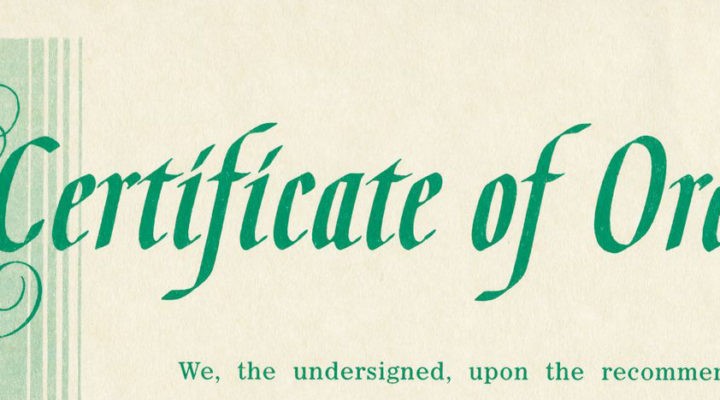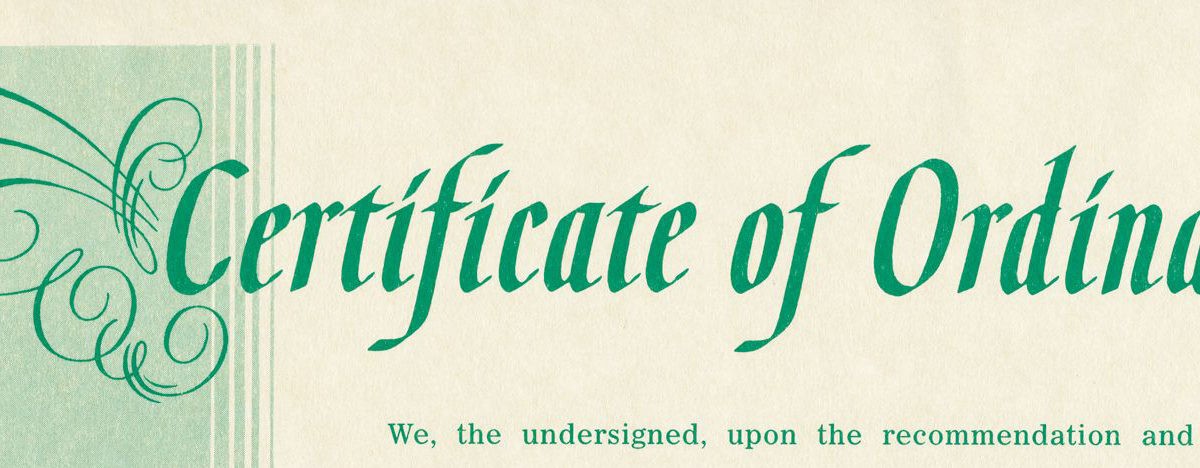I was wrong in advice I gave to young ministers for many years.
My intent was good, but my advice was wrong. The recent intense debate over a Wall Street Journal opinion piece has helped me clarify this.
 In that unfortunate piece, columnist Joseph Epstein addressed President-elect Joe Biden’s wife, Jill Biden, as “kiddo” and urged her to stop using the title “Dr.” before her name. His case was weak and presented flippantly, came across as disrespectful and out of touch and rang hollow because the incoming “First Lady” — another unfortunate relic of a term — has an earned doctoral degree in education and is, in fact, a college professor.
In that unfortunate piece, columnist Joseph Epstein addressed President-elect Joe Biden’s wife, Jill Biden, as “kiddo” and urged her to stop using the title “Dr.” before her name. His case was weak and presented flippantly, came across as disrespectful and out of touch and rang hollow because the incoming “First Lady” — another unfortunate relic of a term — has an earned doctoral degree in education and is, in fact, a college professor.
The column sparked an immediate and intense backlash, which prompted the Journal’s opinion editor, Paul Gigot, to double down in defense of the column and accuse the paper’s critics of being captive to “cancel culture.”
If you’ve missed this debate, it’s easy to find online and worth your time to explore. Reading the back and forth on this caused me to reflect on my own views about honorific titles used among clergy.
First, for clarity, I need to explain that BNG — and thus this very column — follows Associated Press style, which avoids all use of courtesy titles before names. We do not use “Mr.” or “Mrs.” or “Dr.” or “Rev.” But following AP style, we do use titles that describe a person’s named position, such as “Sen.” or “Rep.” or “Gov.” That’s important to understand, lest you think I’m here betraying the very thing I’m about to confess.
“Typically, young clergy, newly ordained to the ministry, come into the program and are eager to sign off on emails and other communications with the title ‘Reverend’ attached to their names.”
In 17 years of working with young clergy coming through the pastoral residency program at Wilshire Baptist Church in Dallas — with more than 30 alumni produced in that period — I often had to address the matter of honorific titles. Typically, young clergy, newly ordained to the ministry, come into the program and are eager to sign off on emails and other communications with the title “Reverend” attached to their names.
My perception was that in our particular church culture, the pastoral staff did not routinely use courtesy titles for ourselves. Even our senior pastor, who holds an earned doctor of philosophy degree, is known within the congregation simply as “George.” To most everyone, he’s not “Pastor George” or “Rev. Mason” or “Rev. Dr. Mason,” all of which would be true descriptions.
And anyone who called me “Rev. Wingfield” would send a sure signal that they weren’t from around here. I even bristled a bit when a newcomer called me “Pastor Mark.” That just wasn’t our culture.
So I felt justified in advising young clergy coming into our residency program or onto our pastoral staff to eschew the courtesy title in order to fit in and not appear arrogant. I now see that my intent was good, but the outcome was wrong.
The most frequent pushback I got came from women, who explained that people outside the church seldom recognized them as ministers unless they used the title “Reverend” with their names. The assumption outside our progressive Baptist bubble was that if you were a woman, you could not be a clergyperson. As a result, they said, not identifying their ordination credentials made them less visible, less accepted and less respected.
I too easily dismissed this as being the result of a staff member needing personal validation in her calling or being influenced with the culture of other Christian denominations that more routinely use salutations. In Methodist and Episcopal life, for example, it is far more common than in Baptist life for clergy to be identified routinely as “Reverend” or some similar title.
“I wrongly assumed that if they boldly persevered, they would be accepted and known just as I was.”
What I failed to understand — because I lacked personal experience in this matter — was the reality of what these female colleagues were trying to tell me. I wrongly assumed that if they boldly persevered, they would be accepted and known just as I was.
My own life experience was to sometimes be called “Dr. Wingfield” as an assumption by others simply because of the positions I’ve held — even though in reality I remain to this day several credits short of a master’s degree.
And that in itself is a point worth noting in this debate. Because I am a white male, I have been able to get pretty far despite the fact that I dropped out of seminary (after earning three-fourths of the credit hours needed) in order to take a good job in another state and was able to never look back and regret that choice. Had I been a woman or a person of color, it is not likely that I would have been given credit for “life experience” that continued to open doors for me.
Looking back, I see also that my personal disdain for courtesy titles within the church has been a reaction to abuses by other white males. Along the way, I’ve encountered too many pastors who clung to honorary doctorates from third-tier colleges as integral parts of their identity. That’s another cultural problem within Baptist life, which has so valued building up the egos of men while denying earned recognition for women.
But the bottom line is this: I was wrong in the advice I used to give young clergy, especially women. I assumed my experience could be theirs, and that was naïve. Even if I hoped my experience could be theirs, that was naïve.
Every church community has its culture, and how we address one another there is a matter of local agreement. I’m not arguing for injecting a standardized formality of culture on churches. What I am saying, though, is that white men like me need to listen to women and persons of color and help them be seen as the worthy and accomplished persons they are. If using a title before a name helps that goal, I’m all for it.
But, please, don’t call me “Dr. Wingfield.” I don’t have the degree.
Mark Wingfield serves as executive director and publisher of Baptist News Global.


